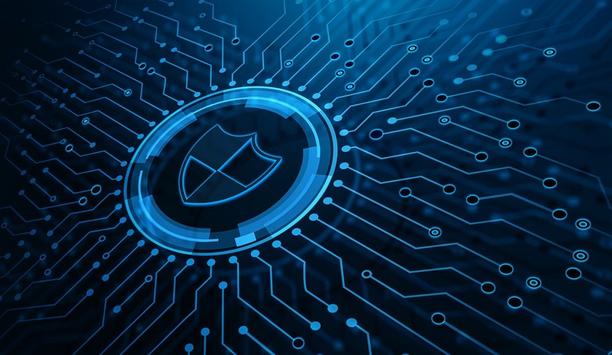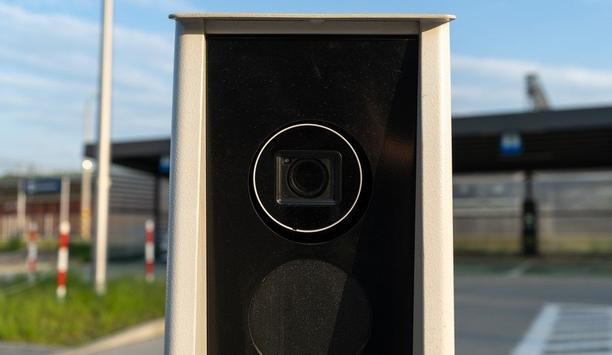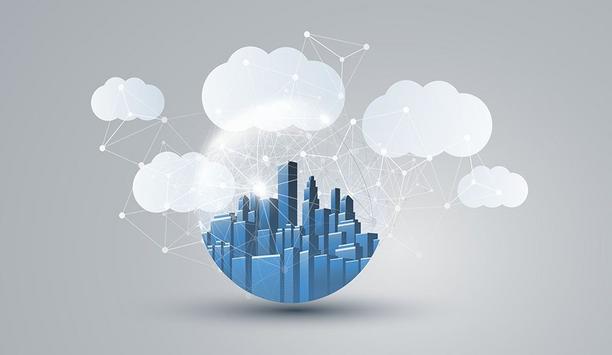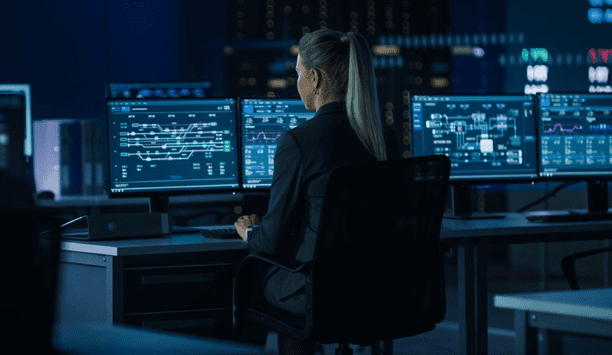Round table discussions
In today's interconnected world, the lines between physical and digital security are blurring. This means that threats can easily exploit vulnerabilities in both realms, potentially causing significant damage. That's why the convergence of cyber- and physical security systems is becoming increasingly important. It has already been a topic of discussion in the security market for more than a decade. To get a reality check, we asked this week’s Expert Panel Roundtable: Has convergence been a...
There is a bright outlook for trade shows in 2024. In particular, ISC West has recently become the must-see event in the security marketplace. ISC West will take place April 9-12 at the Venetian Expo in Las Vegas. In addition to providing access to a wide range of technological innovations, the show also serves as a platform to introduce new products and services. As the industry counts down to the big exhibition, we asked this week’s Expert Panel Roundtable: What will be the big news...
By all reports we have heard, 2024 is rushing by at a rapid pace. Many of us are just now catching our breaths after the busy holiday season, even though spring is practically here. Having had a healthy taste of 2024 already, our Expert Panel Roundtable is eager to weigh in on what lies ahead for the rest of the year to come. We asked this week’s panel: What large trends are driving growth in the physical security industry in the year ahead?
Edge devices play an important role in the Internet of Things (IoT) by enabling real-time data analysis, faster decision-making, and improved operational efficiency across various industries. In the physical security industry, applying artificial intelligence (AI) capabilities to edge devices expands the possibilities, and edge devices offer complementary functionality to support movement to the cloud. We asked this week’s Expert Panel Roundtable: What are the latest developments for edge...
With the new year well underway, 2023 seems almost like a distant memory. However, a bit of distance might be just the thing to enable us to examine the impact of the year 2023 on the physical security marketplace. We asked this week’s Expert Panel Roundtable: What factors had the biggest impact on the security marketplace in 2023?
Protecting access control data is a core concept when it comes to safeguarding information assets, maintaining trust, and ensuring smooth operations. Guarding access to data also ensures compliance with regulations, prevents accidental misuse, and streamlines workflows. We asked this week’s Expert Panel Roundtable: What safeguards are in place to avoid unauthorised retrieval of access control data?
In the complex world of physical security systems, standards can enable disparate systems to be combined to function together as a cohesive whole. Standards help to ensure that all the “pieces” fit together to create a clear, unified picture. More broadly speaking, standards also play a role in ensuring best practices are deployed in a range of security-related situations. We asked this week’s Expert Panel Roundtable: Which standards have had the greatest positive impact...
There is a complex and interdependent relationship between security and productivity. Good security is needed to make productivity possible, but security measures could, in some instances, hinder workplace efficiency. New technologies are enabling security systems to have a more profound and positive impact on productivity by yielding better intelligence to guide the improvement of workplace practices. Multiple systems that work together, rather than separately, improve the productivity of secur...
As the new year dawns, it's a good time for the security industry to look ahead to 2024. We asked this week's Expert Panel Roundtable: What will be the biggest surprise for security in the year ahead?
Machine learning (ML) is a field within Artificial Intelligence (AI) and one of the more common buzzwords in the physical security market. ML focuses on building computer systems that can learn and improve on their own, without being explicitly programmed for every scenario. Machine learning is poised to revolutionise physical security by offering a more proactive, data-driven approach to securing people and assets. We asked this week’s Expert Panel Roundtable: What is Machine Learning (ML...
Every day, the physical security industry succeeds in applying technologies that make the world a safer place. Manufacturers, integrators, and end users are eager to share their success stories, and their successes can inspire others to implement the same technology solutions. But, occasionally, technology does not live up to expectations and, in fact, fails to perform as promised. We asked this week’s Expert Panel Roundtable: How has the physical security industry failed to meet customer...
Ideally, every new product or technology serves a need in the market, but not all new products are created equal. The impact of some new technologies is so profound that they make us rethink our preconceptions and may create a total transition in the broader market. These are the technologies we call “game changers” because they prompt a significant shift in the current manner of doing or thinking about security. We asked this week’s Expert Panel Roundtable: What current techno...
Video surveillance has been a dominant factor in the casino market since the 1950s when video replaced the use of elevated walkways that allowed casino security personnel to monitor the gaming floor from above. As technology continues to evolve, we can expect to see more innovative uses of video in the casino market. Beyond video, other technologies are also transforming the casino experience. We asked this week’s Expert Panel Roundtable: How are new technologies impacting the casino surve...
Security systems are often seen as an investment, but usually not one that pays dividends. However, newer technologies are enabling end users to extend their efforts to cost-justify a security system beyond the mirage of “measuring what didn’t happen.” Nowadays, security systems provide quantifiable benefits that yield a return on customers’ investments. We asked this week’s Expert Panel Roundtable: How can security systems maximize return on investment (ROI)?
For many years, security systems produced their share of "data exhaust." Every access control action and each video image became a data point to be stored in perpetuity, with no practical way to use the data. More recently, systems have been developed to enable organizations to analyze data from sensors and other connected devices to gain valuable insights into how their systems are being used, to identify potential vulnerabilities; and even to provide insights into broader enterprise operations...
Frictionless systems provide access to a building without interfering at all with a user’s entry experience. Frictionless access means you can automatically pass through a gate without showing a credential or otherwise engaging, and with the system recognising who you are and allowing you to pass. In true frictionless access, everything works seamlessly, with unauthorised people obviously barred. But how close are we to realising frictionless access control? We asked this week’s Expe...
Cloud implementations enable organisations to slash IT costs, boost performance, increase efficiency, and provide flexibility in a variety of applications. Cloud computing is a great way to store and access data from anywhere in the world, as long as you have an internet connection. In the case of video management, Video Surveillance as a Service (VSaaS) systems are becoming more popular, both as a means of managing costs and to deliver expectations of accessing video from any device anywhere in...
Physical security is a large market overall, encompassing a range of diverse vertical markets, each with its own set of challenges and opportunities. The success of the security industry overall depends on the ability of companies and technologies to meet the specific needs of each vertical market. Some markets offer more lucrative opportunities than others. We asked this week’s Expert Panel Roundtable: Which vertical markets have the greatest potential for growth for physical security sys...
An organisation’s security director manages a staff of security personnel, implements and enforces security policies and procedures, and generally ensures the safety of personnel and visitors to the organisation’s premises. Over the years, the role of security director has expanded to include new disciplines such as cybersecurity. More and more, security directors are also taking a “seat at the table” as integral and critical members of a company’s management team....
There is safety in numbers, or so the expression goes. Generally speaking, several employees working together tend to be safer than a single employee working alone. Even so, some environments require that workers complete their jobs alone, thus presenting a unique combination of security vulnerabilities. The U.S. Occupational Safety and Health Administration (OSHA) defines a lone worker as “an employee working alone, such as in a confined space or isolated location.” We asked this we...
In the United States, they are called licence plate recognition (LPR) systems. In Europe, the more common term is automated licence number-plate recognition (ANPR). In either case, the systems provide capabilities that can benefit a range of applications from schools to municipalities to parking lots. Newer technologies can even identify vehicle colour, type, make and model. We asked this week’s Expert Panel Roundtable: What's new with licence plate recognition (LPR) and/or automated numbe...
Video storage has come a long way since rooms full of VCRs stored video from an entire system of cameras. Video storage equates to data storage, and there are multiple options ranging from hard disk storage to the cloud to storage on each individual camera using SD cards. Increasingly, cloud-based storage is an attractive option to store video footage conveniently and safely. We asked this week’s Expert Panel Roundtable: How is expansion of video storage capabilities impacting the security...
Headlines of violence in our schools are a reminder of the need to keep educational institutions safe. In fact, if there is a positive aspect to the constant bombardment of headlines, it is that it keeps our attention perpetually focused on how to improve school security. But what is the role of physical security systems? As the new school year begins, we asked this week’s Expert Panel Roundtable: Are schools safer because of physical security systems? Why or why not?
As physical security technologies become more complex, it is incumbent on the dealer/integrator to have the skills and expertise needed to ensure that a system operates smoothly. The value of integrators increasingly rests on the skill sets they bring to bear when installing a system. If the skills are missing, there is a problem. We asked this week’s Expert Panel Roundtable: What missing skills among security integrators can cause problems for customers?
Driving the smart homes market is the convenience of simple technology solutions. Almost every home now has a “smart speaker” that makes it easier than ever for homeowners to interface and control their technology. But where does security fit into the new landscape of smart home systems? We asked this week’s Expert Panel Roundtable: What’s new in smart homes and residential security systems?
Historically, the emphasis of security systems has been on reactivity, whether it’s providing video evidence of an incident or data to support a resulting investigation. Reactivity is core to impactful security, but increasingly, systems are also seeking to be more proactive. A proactive system seeks to prevent events from happening in the first place, thus mitigating the harm to an organisation, and making the need for a reactive response moot. We asked this week’s Expert Panel Roun...
The role of the integrator/installer in the physical security marketplace is shifting as technologies evolve and applications expand. Integrators are being faced with a need to augment their expertise both in a wider range of systems and deeper into the specifics of each increasingly complex technology. At the end of the day, it falls to the integrator/installer to ensure a system performs as promised, however much a consultant or even a manufacturer might be involved in the process. We asked th...
Deployed across a wide range of devices, the Internet of Things (IoT) collects data to help business owners make decisions on a macro scale as well as at a granular level. The IoT is a network of physical devices embedded with sensors, software, and network connectivity that allows them to collect and share data. We called on this week's Expert Panel Roundtable to comment on the intersection of the IoT and physical security. We asked: How is the Internet of Things (IoT) increasing the effectiven...
Analogue video cameras are still used in a variety of applications, primarily because yesterday’s robust and flexible technology is still functioning today, although it has been years, or even decades, since the initial installation. In many cases, this past generation of security cameras is still reliable and effective. Embracing an installed base of analogue cameras is often the most cost-effective approach when updating or expanding a surveillance system. But what about the futur...
Sharing data between security and building management devices can provide a route to maximise building usage and minimise costs. In today's Internet of Things (IoT) environment, tying together a variety of systems is easier than ever. For an update, we asked this week's Expert Panel Roundtable: What are the benefits of integrating security technology with building management systems (BMS)?
Security experts
Expert commentary
Palm vein recognition
DownloadThe key to unlocking K12 school safety grants
DownloadPhysical access control
Download5 surprising findings from OT vulnerability assessments
DownloadHoneywell GARD USB threat report 2024
Download



































































